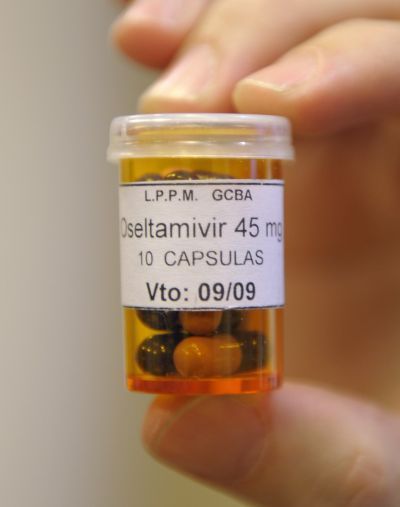Britain probes transmission of drug-resistant swine flu

Your support helps us to tell the story
From reproductive rights to climate change to Big Tech, The Independent is on the ground when the story is developing. Whether it's investigating the financials of Elon Musk's pro-Trump PAC or producing our latest documentary, 'The A Word', which shines a light on the American women fighting for reproductive rights, we know how important it is to parse out the facts from the messaging.
At such a critical moment in US history, we need reporters on the ground. Your donation allows us to keep sending journalists to speak to both sides of the story.
The Independent is trusted by Americans across the entire political spectrum. And unlike many other quality news outlets, we choose not to lock Americans out of our reporting and analysis with paywalls. We believe quality journalism should be available to everyone, paid for by those who can afford it.
Your support makes all the difference.British health authorities said Friday they are investigating what could be the world's first cases of person-to-person transmission of a strain of drug-resistant swine flu.
Five people in a hospital unit in Wales have a strain of the A(H1N1) virus that is resistant to Tamiflu and "three of these appear to have acquired the infection in hospital", the public health service in Wales said.
"Although further epidemiological investigation is under way, it would seem likely that transmission of oseltamivir-resistant H1N1 virus has taken place," added the Health Protection Agency (HPA) in a separate statement.
This was a possible world first. The HPA noted that while almost 60 incidences of Tamiflu-resistant flu had been reported worldwide, "there have been no documented episodes of person-to-person transmission."
It said the risk of drug-resistant flu remained "low" noting the five patients affected had severe underlying health conditions and were being treated at a special unit at the University Hospital of Wales in Cardiff.
"The emergence of influenza A viruses that are resistant to Tamiflu is not unexpected in patients with serious underlying conditions and suppressed immune systems," said Dr. Roland Salmon, director for communicable disease surveillance for NPHS.
He added that the resistant strain "does not appear to be any more severe than the swine flu virus that has been circulating since April", and said Tamiflu, made by Swiss drugs giant Roche, remained effective for most people.
The HPA said that another leading antiviral drug, Relenza, was being used to treat the five Welsh patients and they were "responding well".
Two patients had recovered and been discharged from hospital, one remained in critical care and two others continue to be treated, officials said.
Britain is the European country most affected by swine flu, with about 715,000 cases of the virus and 100 deaths since the pandemic began.
The latest data from the World Health Organisation showed that around 6,750 people worldwide had died from swine flu since the virus was first uncovered in Mexico and the United States in April.
ar/har
Join our commenting forum
Join thought-provoking conversations, follow other Independent readers and see their replies
Comments